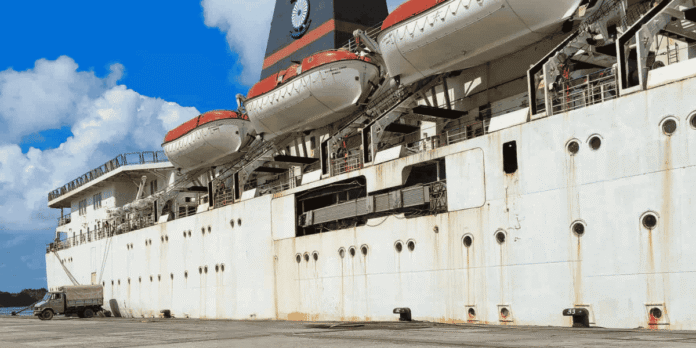Sri Vijaya Puram: After years of uncertainty, two long-delayed passenger vessels, MV Atal and MV Ashoka, may finally be deployed for public service in the Andaman and Nicobar Islands. Union Minister of State for Ports, Shipping and Waterways Shantanu Thakur recently said the government considers reinstating the ships a “priority,” though he acknowledged it may take some time.
“The reinstatement of these vessels is a priority,” Thakur said at a press briefing in Sri Vijaya Puram. “But these things do not happen overnight. It may take time.”
The statement, while cautious, marks the first public indication that the Centre may be reconsidering earlier plans to hand the vessels over to the Indian Navy, a proposal that had sparked widespread concern among island residents and local leaders. For many, it represents a long-overdue recognition that maritime connectivity remains a vital economic and social lifeline for the island chain.
Sanctioned under an ₹816 crore central government project to boost sea connectivity between mainland India and the remote island territories, the two ships were constructed by Cochin Shipyard Limited. MV Ashoka was launched in January 2020, and MV Atal in August 2022. Each vessel can carry 1,200 passengers and over 1,000 tonnes of cargo, including refrigerated containers. Designed to international safety and comfort standards, they were meant to replace ageing ships like MV Nicobar and MV Nancowry, which are nearing decommissioning after decades of service.
Yet, nearly four years since the launch of the first vessel, both ships remain absent from the public transport system.
Initial enthusiasm gave way to frustration as reports emerged in 2021 that the Ministry of Defence was exploring whether the vessels could be handed over to the Navy for strategic use. The rationale, according to sources, was based on assumptions that air travel had become more accessible and cost-competitive with ship travel, particularly in the post-UDAN era. A section of bureaucrats argued that demand for long-haul passenger shipping would diminish as aviation expanded.
But that calculation no longer holds, said Minister Thakur. “Pre-COVID, there was a belief that air travel would take over because of fare parity. But after COVID, with rising airfares and reduced connectivity, ship travel has become essential again, especially for the common islander,” he said. “That context is now being revisited.”
His remarks represent a quiet but significant policy correction. Airfares on the mainland–island route have surged in recent years, especially during peak seasons, with many residents struggling to afford even basic travel. Unlike tourists, who may plan trips around availability, locals often travel for urgent needs, medical treatment, education, trade, or government duty.
Islanders have long argued that ships remain the only truly inclusive form of long-distance transport for the archipelago. While air connectivity is faster, it is often unaffordable, especially for those living in the Nicobar Islands or the outer islands. In contrast, ship services, despite being slow, have historically served as a dependable, subsidized link for both people and cargo.
Political and civic pressure has been steadily building. The Andaman Moplah Service Organisation (AMSO), along with other advocacy groups and trade unions, has sent memoranda to the Prime Minister, highlighting the severe impact of the ships’ absence. Local traders cite higher shipping costs due to over-dependence on private operators and reduced cargo space. Medical patients and students, meanwhile, complain of delays, long waiting lists, and limited options for reaching the mainland.
Despite repeated assurances from successive lieutenant governors and senior shipping officials, often made during Republic Day or Independence Day addresses, the vessels have remained docked, occasionally sighted during sea trials but never deployed for public service.
For many, Minister Thakur’s statement offers cautious hope. “We are tired of symbolic gestures and ceremonial flag-offs,” said F.M. Basheer, a civic leader based in Rangat. “What we need is regular, affordable service. These ships were built for the people. Let them sail for the people.”
There are also economic implications. Tourism stakeholders believe that better sea connectivity can help decongest flights and boost footfall from budget travelers, especially during the monsoon off-season when air traffic dips. Others point out that the ships could be repurposed to connect inter-island routes temporarily, reducing the burden on ageing vessels like MV Campbell Bay and MV Swaraj Dweep, which often suffer breakdowns.
Still, skepticism remains. Without a clear deployment timeline or operational roadmap, many fear the latest remarks may simply extend the cycle of delay and deferral. Bureaucratic bottlenecks, coordination gaps between the Ministry of Shipping and the Andaman administration, and a history of logistical mismanagement have dogged previous shipping upgrades in the region.





